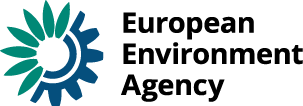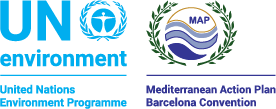Environment Agency Austria shares it’s experience on waste monitoring, data collection and production of statistics with an Israeli delegation during a 4-day study tour
In the framework of the ENI SEIS II South Support Mechanism, Environment Agency Austria (Umweltbundesamt) hosts a 4-day study tour on waste management monitoring on 8-11 October in Vienna, with participants from Israeli Ministry of Environmental Protection and Central Bureau of Statistics.
Waste management is one of the top priorities to tackle the main sources of pollution of the Mediterranean Sea and contributes to the Horizon 2020 initiative for a cleaner Mediterranean. In May 2018, Israel adopted a new waste management strategy 2030 aiming at reducing landfilling, increasing recycling rates, and reducing pollution and environmental risks. Some of its main components include:
- Preventing landfilling of waste before it is sorted,
- Introducing regional waste treatment to the waste market, which will make it more efficient,
- Building waste sorting and treatment facilities around the country. These will include: advanced sorting facilities energy recovery facilities, and other waste treatment facilities.
To monitor progress towards the waste management strategy 2030, accurate data across the whole of the waste sector is absolutely key for the development of future strategies, detailed plans, infrastructure, collections, education, procurement and every other element of a successful controlled waste industry.
Once accurate waste datasets are established, realistic targets, financial instruments and country-wide treatment infrastructure can be established with confidence. All levels of government are in a position to develop and amend policies, strategies plans, whilst accurately costing these proposals. The importance of the collection of accurate data for waste planning and infrastructure procurement at a national level is fully acknowledged by the Israeli Ministry of Environmental Protection. In early 2016, the waste Department of the MoEP developed a country-wide Waste Data Flow system to connect all waste treatment facilities. The aim is to allow local authorities to access the information from this system and ensure a complete reporting of data.
Within the ENI SEIS II South Support Mechanism, Environment Agency Austria (Umweltbundesamt GmbH) hosts a study tour from 8-11 October, gathering participants from the Ministry of Environment, Central Bureau of statistics.
Umweltbundesamt is well experienced in the fields of waste management, waste legislation as well as waste information system. Umweltbundesam experts have detailed expertise in the analysis of legal, technical, ecological and socio-economic aspects of waste management and waste treatment. At national level Umweltbundesamt regularly performs assessments related to best available technology in waste treatment and elaborates proposals for minimum treatment standards. Umweltbundesamt has more than 20 years of experience in data collection, processing, validation and interpretation of data on waste and developed an Electronic Data Management (EDM) system for waste. Umweltbundesamt collaborates with Statistics Austria, the national statistical service and regularly prepared the Austrian Waste Statistics according to the EU Waste Statistics Regulation. Umweltbundesamt is a provider of national statistical data on waste, with experts having profound knowledge on the extent, structure and definitions of Eurostat’s waste questionnaires.
Over the 4-day study tour, the Israeli delegation will have the opportunity to:
- Visit waste incineration and treatment plants (compost, mechanical biological treatment, etc..),
- Discuss and exchange experiences with Austrian experts in the field of monitoring, data collection and production of waste data and statistics,
- Exchange experiences in the field of data validation prior to generation of statistics and reports,
- Learn about the legal framework (in relation to data collection) and discuss implementation practices in Israel and Austria.


